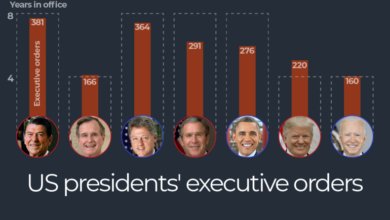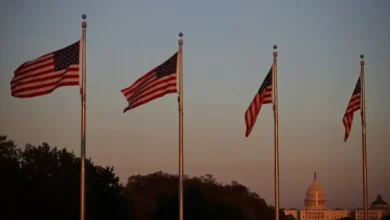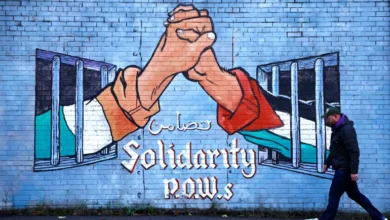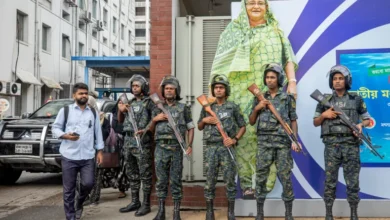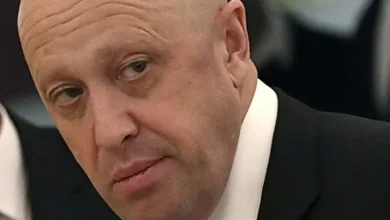Charlie Kirk killing live: Utah to seek death penalty for Tyler Robinson
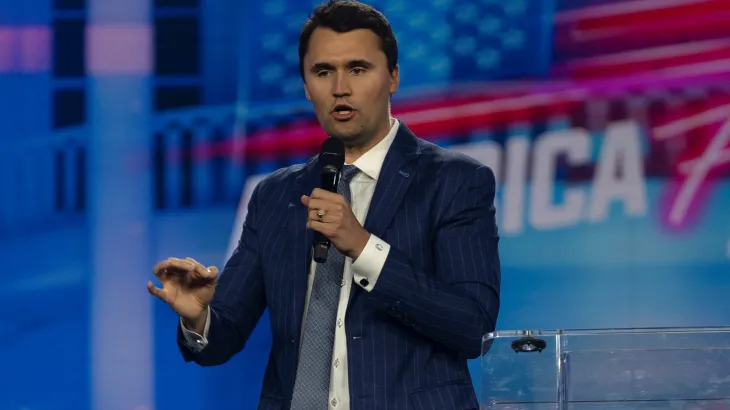
Utah County Attorney Jeff Gray has issued seven charges, including aggravated murder, against Tyler Robinson, 22, a trade school student suspected of assassinating conservative activist Charlie Kirk on September 10 at Utah Valley University in the United States.
Gray says he is “filing a notice of intent to seek the death penalty”.
Trump is set to arrive in London later today for a visit that coincides with tough trade negotiations between the US and many of its key trading partners, including the United Kingdom. During his stay, both countries plan to announce several deals on technology and civil nuclear energy, and British leaders hope to finalise an agreement on metal tariffs.
Trump and his wife, Melania, will be treated to royal pageantry throughout their two-day stay, including a ceremonial welcome from King Charles at Windsor Castle. The British government is confident that royal soft power will appeal to Trump’s sense of flamboyance.
Trump’s visit will be the first at which UK and US F-35 fighter jets join up for a flyover, as the US president is treated to a military ceremonial described by the Government as unprecedented in its scale and spectacle.
Before setting off, Trump said he was looking forward to meeting with his friend, King Charles III, whom he described as an “elegant gentleman”.
What details were revealed at Kirk shooting news conference?
Utah County Attorney Jeff Gray said that alleged shooter Robinson had been charged with seven offences, including aggravated murder and felony discharge of a weapon. He said he would seek the death penalty.
Gray focused not just on the killing of Kirk, but on the danger posed to other attendees at the event, particularly children.
Utah Valley University surveillance captured the alleged gunman entering campus, and walking with an “unusual gate … consistent with a rifle being hidden in his pants”. Dressed in dark clothes, the individual is seen accessing a roof and later fleeing after the shots were fired.
Robinson’s mother later saw a picture of the suspect and called her son. His father later convinced Robinson to meet them and speak with a family friend who was a retired deputy sheriff. They eventually convinced him to turn himself in.
Robinson messaged his romantic partner after the attack, appearing to admit to the killing and saying he “had enough of his [Kirk’s] hatred”.
Police again described the engravings on the bullets recovered, but offered few further details. In a message to his romantic partner, Robinson described the messages as “big meme”.
Robinson’s family described the alleged shooter as becoming increasingly political, and clashing with his father and others over their views.
What comes next in Kirk case?
Utah District Attorney Gray has laid out the next steps in the case:
Robinson will appear in court today via web camera to be informed of charges and to ensure he has an attorney.
He will then be “entitled to a preliminary hearing”, and “at that hearing, the state will be required to show probable cause the defendant committed the crimes”.
If a judge finds probable cause to proceed with the trial, an arraignment hearing will be held.
At the arraignment hearing, Robinson will enter a plea of guilty or not guilty for each charge.
Both sides will then file any relevant motions ahead of the trial beginning.
News conference ends
Gray ended his news conference about 35 minutes after starting. The bulk of his time was spent reading directly from the 10-page indictment, though he did take questions from the press following his public statements.
Questions were raised regarding the suspected shooter’s possible motive, whether Robinson’s texts constituted a confession, and whether police were investigating further suspects – which FBI Director Kash Patel implied in his Senate hearing this morning.
For the most part, Gray declined to comment or referred back to his earlier statements.
He noted, “We don’t have any information at this point of additional suspects, but I know that our law enforcement agencies are continuing to follow leads.”
Gray’s conference, with its sober tone and repeated focus on the rule of law, presents a marked contrast to how federal officials have talked about the case.
